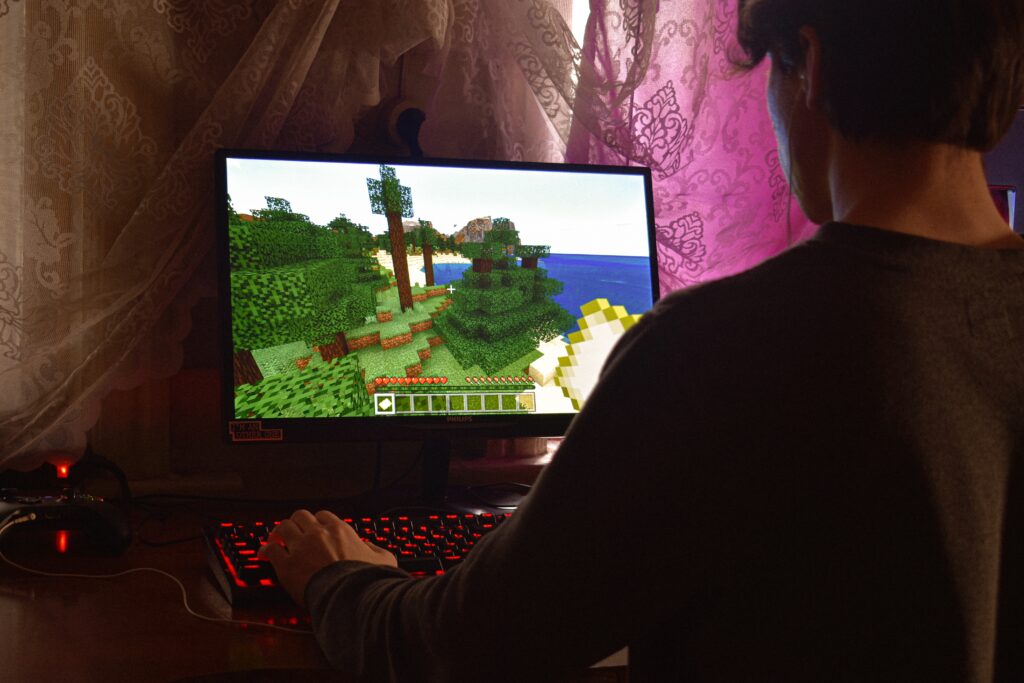
Do Video Games Rot Your Brain?
Video games do not rot your brain. In fact, they are great for keeping your brain active and healthy. Some games have been shown to help keep older brains healthy and there’s some evidence that certain games such as puzzle games can help prevent dementia in later life by ensuring the brain is kept active. That being said, there are bad sides to playing video games as well as good. That being said, it doesn’t stop sensationalist news sources from claiming that video games do rot your brain. This kind of knee-jerk reaction is something not unfamiliar to games, just like TV and music before it. So let’s take a look at the facts.
Do Video Games Actually Rot Your Brain?
Although the headline of that article might seem catastrophic for those of us who play games, reading further into it you find that it was a short-term study, having people play games for 90 hours and then monitoring the amount of grey matter. The actual study (not linked to in the article) showed that those that played only shooting games like Call of Duty had reduced brain matter in the hippocampus region, specifically to do with spatial awareness. However, those that played 3D platforming games had an increase of grey matter in the region.
This shows it’s much more complicated than initially made out and that different types of video games can have different effects on the brain. Much like a diet requires a healthy balance of food groups, a healthy brain needs a variety of activities to keep it healthy. Video games can have good effects on the brain, but they should not be the only ‘exercise’ the brain gets, otherwise it drifts into the region of being unhealthy.
Overplaying Video Games
The biggest issue that gamers should look out for is overplaying video games. While playing a lot of video games won’t make your brain rot, it can have some adverse effects. Video game addiction is real and it’s a huge issue. Allowing video games to become a dominant force in your life can have real consequences. If you are concerned that you or someone you know could be struggling with addiction, seek support.
Lack of exercise is an issue that is notorious among gamers and potentially the biggest health risk to those that play too much. For the most part, games are very sedentary and provide no real physical exercise, this needs to be offset with a healthy lifestyle. Likewise, the stereotype of a gamer is someone who consumes Doritos and energy drinks. A good diet and exercise regime is key to being healthy.
Most of these ill effects are not directly caused by video games themselves, more so the unhealthy lifestyle that comes with unregulated game time. Far from being an unhealthy past-time, moderate game playtime can be good for you. It’s certainly more brain-engaging than watching TV. As with all things in life, moderation is key.
Actual Effects Of Video Games On The Brain
Outside of alarming headlines, there have actually been multiple studies done on the effect of video games on the brain, with the majority of the conclusions coming out with positive effects. Often showing signs of increased grey matter. Video games are not rotting the brain, but building it up. One of the main areas that games seem to have a positive effect is memory and scene recognition, with increased grey matter in the hippocampus, DLPFC, and cerebellum.

Other areas of brain improvement include increased efficiency in divergent thinking, being creative and coming up with ideas ‘outside of the box’, visual-spacial processing, reaction times, and improved functional connectivity which implies better performance. Studies have also shown that games can increase the activity in the brain areas associated with emotion and attention.
So What Does It All Mean?
Video games can have a good effect on the brain, but the side effects of the lifestyle that tends to come with it often have bad side effects. Video games can be a great way to train the brain and a vital tool in keeping ourselves active in our youth and helping to protect the brain into later life. It has to be moderated and supplemented with other parts of a healthy lifestyle, like diet and exercise. It’s also wise to try a wide range of games, such as emotional story-driven games to get the limbic system working as well as puzzle and strategy games to get the prefrontal cortex going. Training all the parts of your brain is like training all the muscles in the body.

